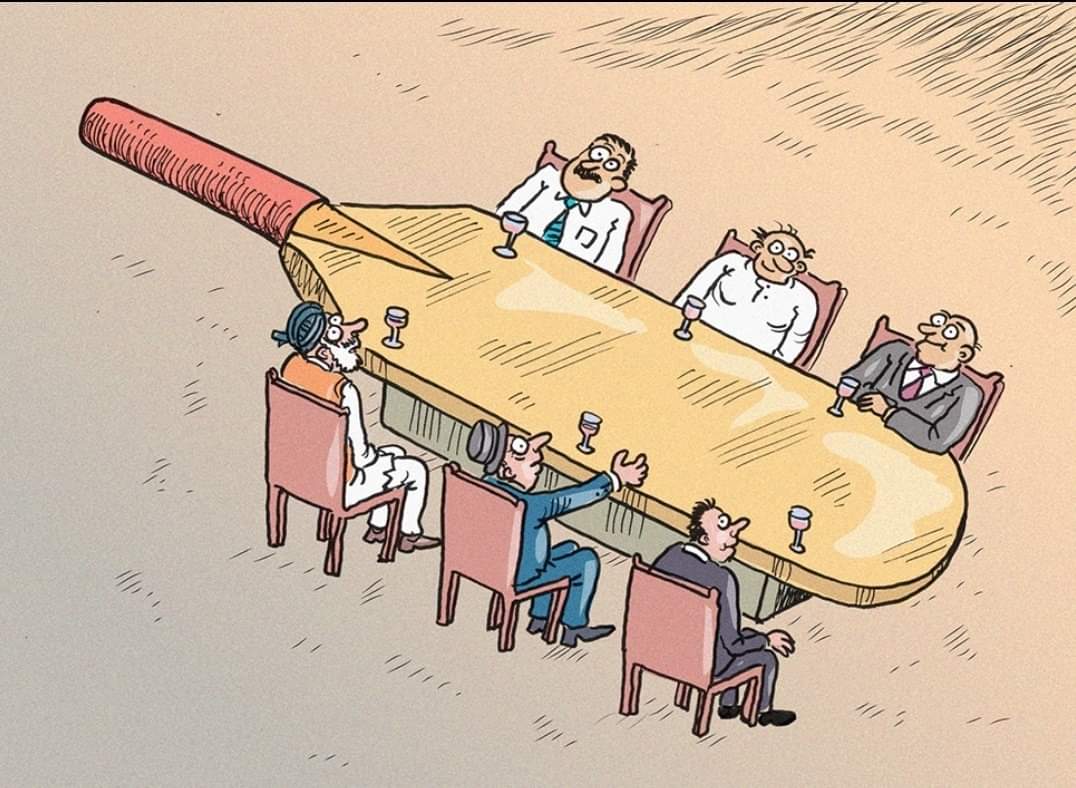 Factum Perspective – Has cricket prevented Asia’s nuclear war?
Factum Perspective – Has cricket prevented Asia’s nuclear war?
By Vindana Ariyawansa

For centuries, competitive sports have been an integral part of human life and society. The evolution of professional sports has paved way for the lucrative club culture in football and basketball. In Cricket, the second most widely played game in the world, matches between countries are most popular and have carry political weight. Can cricket diplomacy improve ties between countries?
India and Pakistan save Sri Lanka during war-time world cup
In 1996, Sri Lanka secured its first opportunity to host a cricket world cup amidst a violent civil war. A bomb explosion in the Capital Colombo a week before the tournament began resulted in the withdrawal of the Australian team and later the West Indies from playing their opening fixture against Sri Lanka in Colombo. Numerous pleas from Sri Lankan officials, including the then Sports Minister who volunteered to accompany visiting cricketers to ensure safety were ignored and Sri Lanka was at risk losing all its host matches. Indian captain Mohamad Azharuddin and his Pakistani counterpart Wasim Akram formed a coalition and brought down their teams to play an exhibition match in a show of solidarity. Despite enormous pressure from the Australia dominated International Cricket Council (ICC), Asian neighbours India and Pakistan stood their ground to back Sri Lanka.
13 years later, in March 2009, the Sri Lankan cricket team’s bus was shot at by terrorists injuring 12 players. Despite the hiccup, strong bilateral ties made Pakistan instrumental in providing military support in defeating the Liberation Tigers of Tamil Ealam (LTTE). The Sri Lankan cricket team has toured Pakistan despite warning of potential terror attacks multiple times on account of strong bilateral ties even when Western nations such Australia and New Zealand have opted out.
Zimbabwe cricket takes hit on Mugabe’s failed international relations
Zimbabwe, another young cricketing nation, was brimming with world class cricketers at one time. The decline of Zimbabwe cricket was a result of then President Robert Mugabe’s policies and disregard for diplomatic relations. In June 2008, then Prime Minister of Britain Gordon Brown told the House of Commons he wants Zimbabwe’s England tour cancelled and called on other nations to the same. The reason, Britain’s push to hold Mugabe’s accountable over the results of a flawed and corrupt which also resulted in the suspension of bilateral relations. Mugabe withheld the pressure but the Zimbabawe’s cricket team took the hit as the team lost many players such as Andy Flower and Henry Olonga This may be argued as the reverse of cricket diplomacy but it is a reality that needs grappling.
Has cricket prevented nuclear war?
Pakistan, the world’s first Muslim-majority state with nuclear power shares a border with its perennial archrival India – another nuclear powerhouse. The friction which intensified since the partition of British India spilt over to cricket. This has made India-Pakistan cricket one of the most tensed sporting rivalries in the world. Before Pakistan became a sovereign state in 1947, Pakistani cricketers played for team India. That changed overnight as the players had to fight their former teammates since the partition. The Kashmir conflict and Indo-Pakistani Wars have only intensified maters. There was a fifteen-year hiatus between two countries playing cricket from 1962 to 1977. But the growth of a large expatriate population of both countries enabled the matches to be played at neutral venues such as Canada and U.A.E. This intensity generates a massive amount of interest, not just for two nations, but for regional neighbours as well.
The tensions continue to date on and off. In 2019, Mumbai’s iconic Cricket Club of India (CCI) which houses the Brabourne stadium decided to remove the portrait of Imran Khan, former Pakistan captain and now Prime Minister from its walls after the Pulwama terror attack which claimed the life of 40 Central Reserve Police Force (CRPF) personnel.
There have been exceptions. After the Soviet invasion of Afghanistan, India was under pressure from Soviet Union to lessen the tension they were facing and a visit from then Pakistani president Zia-ul-Haq to an India – Pakistan test match in Jaipur, helped India ease it. In 2004, India toured Pakistan after a hiatus of 15 years, which resulted in both countries relaxing mutual visa regulations and allowing thousands of Indian fans to travel across the border to watch the tour.
The 2011 Cricket World Cup semi-final played between India and Pakistan was used to ease tension after the 2008 Mumbai attacks allegedly carried out by a terror group based in Pakistan, when Indian PM Manmohan Singh invited Pakistani PM Yousaf Raza Gillani to watch the game together at Mohali. Pakistani PM accepted the invitation sending a powerful message to terror groups that the attacks were not going to disrupt Indo-Pakistan ties.
For South Asian cricket fans, seeing Indo-Pakistan hostilities reaching boiling point and a cricket match playing an unspoken role of diffusing tension is all too familiar. Cricket may not have been the sole reason why a nuclear stand-off hasn’t taken place between India and Pakistan, but it is certainly one of the factors which have helped reset bilateral ties which have helped the two regional giants stay out of full-blown conflict. The 22 yard cricket pitch wields power beyond the stadium and it must stay that way.
(The Writer is an award winning producer and a director of critically acclaimed movies)
***************
Disclaimer – Factum is a Sri Lanka based think-tank providing international relations analysis and public diplomacy consultancies in Sri Lanka and Asia. Visit – www.Factum.LK